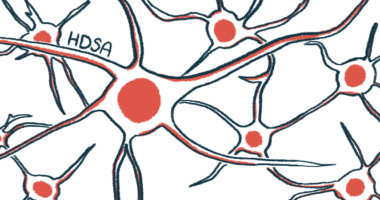Ionis Completes Patient Enrollment in Phase 1/2a Trial of Ionis-HTTRx for Huntington’s Disease

Ionis Pharmaceuticals has completed enrollment of the Phase 1/2a study evaluating the safety, tolerability, properties and movement within the body of Ionis-HTTRx in patients with Huntington’s disease (HD).
Patients who complete the randomized, placebo-controlled, dose escalation study (NCT02519036) will be eligible to enroll in an open-label extension trial that should begin in the next few months. Top-line results are expected by year’s end.
Ionis-HTTRx targets the root cause of HD by reducing production of the toxic mutant huntingtin protein (mHTT) from the mutated huntingtin gene. This antisense drug offers the possibility to treat all patients with HD, regardless of their individual HTT mutation.
The candidate therapy results from a strategic collaboration between Ionis and Roche to develop antisense drugs to treat HD. The alliance combines Ionis’ antisense expertise with Roche’s knowledge in clinical development of anti-neurodegenerative therapeutics.
“We are encouraged by the safety profile of Ionis-HTTRx we have observed to date in the completed dosing cohorts in the Phase 1/2a study,” C. Frank Bennett, senior vice president of research at Ionis, said in a press release. “Upon completion and full analysis of this study, the next step for this program will be to conduct a study to investigate whether decreasing mutant huntingtin protein with Ionis-HTTRx can slow the progression of this terrible disease.”
He added that “Ionis-HTTRx represents the most promising opportunity to address this significant unmet medical need.”
Ionis-HTTRx received orphan drug designation from the U.S. Food and Drug Administration (FDA) in January 2016. That same month, it also won similar status from the European Medicines Agency.
The development of Ionis-HTTRx has been followed with anticipation. The drug candidate was one of the highlights at the Hereditary Disease Foundation‘s 10th biennial “Milton Wexler Celebration of Life” Symposium last year in Cambridge, Massachusetts.
HD is a rare genetic, progressive, neurodegenerative disease that results in deteriorating mental abilities and physical control. Some 30,000 Americans are symptomatic HD patients, and more than 200,000 are at risk of inheriting HD.






